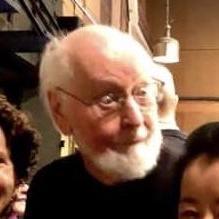-
Posts
733 -
Joined
-
Last visited
-
Days Won
18
Reputation Activity
-
 Falstaft got a reaction from michael_grig in John Williams' April 1980 debut Boston Pops performance (2020 HD broadcast)
Falstaft got a reaction from michael_grig in John Williams' April 1980 debut Boston Pops performance (2020 HD broadcast)
Darth Oma Tres
-
 Falstaft got a reaction from obiwan71 in John Williams' April 1980 debut Boston Pops performance (2020 HD broadcast)
Falstaft got a reaction from obiwan71 in John Williams' April 1980 debut Boston Pops performance (2020 HD broadcast)
Wow wow wow, these are so great @Jay. That bit at the end, someone MUST add some force lightning coming out of his fingers.
-
 Falstaft reacted to lairdo in The New Yorker interview with John Williams
Falstaft reacted to lairdo in The New Yorker interview with John Williams
The article is wonderful, and in The New Yorker style, almost more of a conversation than an interview. Ross not only raises interesting questions and gets interesting answers, but he also sets the scene for us in a way that invites us into the room. Perhaps because we on this site delve into all those micro edits, this is easier for us to imagine. Still, I think the average reader will also feel closer to Williams than they have in the past and know more about him beyond just the composer of big scores. It's been on my mind to re-read Ross's The Rest is Noise as I have been spending a lot of time listening to 20th century works. (Benjamin Britten and Mieczysław Weinberg have become fast favorites over the past year.) I guess I will follow my instinct.
Images has also been on my mind to watch (still have not seen it despite having the Blu-Ray and ripping that to my iPad), and I will listen to the score again today. (Is that perhaps on JW's mind because of some sort of release beyond the Prometheus one that is coming? Wouldn't think so, but who knows?) When you combine that with his comments on Andrew Norman (I like his recent piece with the LA Phil & Gustavo "Sustain" and just got the BMOP SACD "Play" which I have not cracked open yet), there is some sense of the modern composer coming through. I wish Ross had connected those thoughts to the original Star Wars score that contains these elements and presenting Williams' work as more linked than different careers by the same person.
I do wonder if Anne-Sophie and JW mentioning the Violin Concerto over the past month in various interviews was because they (and their teams) knew it would show up in this article which is probably the widest circulation of this news?
On Herrmann: I have no question in my mind that Herrmann is one of the most talented and amazing composers of film music. Perhaps he was the most innovative too, but I think, without trying to bring in the obvious bias that comes with being a regular here, Ross might miss a key aspect of Williams (or Korngold or Goldsmith) that puts him ahead. Not only has Williams innovated and done amazing works even to lesser films, he has also done so in a way that is memorable. Sure, I can hear in my head many themes by Herrmann, particularly for his Hitchcock scores, but not as many as Williams and not ones I want to spend as much time with --- and ones that also work perfectly with the films and can be played in concert halls. Popularism is not a bad thing, particularly if it brings the artistry to people in a way they wish to engage with. We have no true measure of "best" in any evaluation such as this, but I do think the acceptance of works after a period of evaluation is part of a measure the greatness.
Lastly, my congrats as well to Frank and Emilio.
(And upon going back through the comments, Ludwig made my last point so much more eloquently!)
-
 Falstaft got a reaction from lairdo in The New Yorker interview with John Williams
Falstaft got a reaction from lairdo in The New Yorker interview with John Williams
I'm as floored as the rest of you! I knew from social media that Alex Ross had chatted w/ JW back in February, but had no idea about the content of their interview, or that the maestro himself apparently leafed through my catalogue.
I can't imagine the "online fan sites" Ross says Williams is "delighted" by could be anything other than JWfan. It means a lot, even in just this small way, to know that JW is aware of all the passion and interest his music has inspired in this little community.
-
 Falstaft got a reaction from Fabulin in John Williams' April 1980 debut Boston Pops performance (2020 HD broadcast)
Falstaft got a reaction from Fabulin in John Williams' April 1980 debut Boston Pops performance (2020 HD broadcast)
Darth Oma Tres
-
 Falstaft got a reaction from Will in The New Yorker interview with John Williams
Falstaft got a reaction from Will in The New Yorker interview with John Williams
I secretly hope he flipped to the page that contains the theme from TROS "The Speeder Chase" and thought to himself "oh good, at least there are a few people who have heard that one..."
-
 Falstaft got a reaction from Arpy in The New Yorker interview with John Williams
Falstaft got a reaction from Arpy in The New Yorker interview with John Williams
I secretly hope he flipped to the page that contains the theme from TROS "The Speeder Chase" and thought to himself "oh good, at least there are a few people who have heard that one..."
-
 Falstaft got a reaction from Jay in John Williams' April 1980 debut Boston Pops performance (2020 HD broadcast)
Falstaft got a reaction from Jay in John Williams' April 1980 debut Boston Pops performance (2020 HD broadcast)
Amazing.
-
 Falstaft reacted to Ludwig in The New Yorker interview with John Williams
Falstaft reacted to Ludwig in The New Yorker interview with John Williams
I'm still blown away by the fact that Williams himself actually leafed through @Falstaft's catalogue! And just riffing on what @Cerebral Cortex said, I'd say that the catalogue with the amount of work that's gone into it (not to mention the length of its bibliography) is perhaps the most immediate way of seeing just how much of an impact his film music has made in the academic realm.
I've contributed to that scholarship as well, and every time I analyze Williams' music for any kind of research, I find that it stands up to the rigorous kind of scrutiny that scholars typically subject music to. There's a consistently high level of musicality, which is hard to put into words, but it's things like attention to the smallest details, breadth and depth of knowledge, and appropriateness of technique that time and again rewards the study put into it.
One of the greatest things about Williams' film music is not just that it has an impressive complexity and richness to it, but that it merges that complexity with an attractive simplicity (usually through the themes) - that allows the music to be accessible to just about anyone.
-
 Falstaft reacted to Nick Parker in John Williams' April 1980 debut Boston Pops performance (2020 HD broadcast)
Falstaft reacted to Nick Parker in John Williams' April 1980 debut Boston Pops performance (2020 HD broadcast)
@Falstaft Contact Alex Ross, let him know that you've found additional information for him to present to Williams.
-
 Falstaft got a reaction from rpvee in John Williams' April 1980 debut Boston Pops performance (2020 HD broadcast)
Falstaft got a reaction from rpvee in John Williams' April 1980 debut Boston Pops performance (2020 HD broadcast)
Darth Oma Tres
-
 Falstaft got a reaction from crumbs in The New Yorker interview with John Williams
Falstaft got a reaction from crumbs in The New Yorker interview with John Williams
I secretly hope he flipped to the page that contains the theme from TROS "The Speeder Chase" and thought to himself "oh good, at least there are a few people who have heard that one..."
-
 Falstaft got a reaction from Remco in John Williams' April 1980 debut Boston Pops performance (2020 HD broadcast)
Falstaft got a reaction from Remco in John Williams' April 1980 debut Boston Pops performance (2020 HD broadcast)
Darth Oma Tres
-
 Falstaft got a reaction from Pando in The New Yorker interview with John Williams
Falstaft got a reaction from Pando in The New Yorker interview with John Williams
I secretly hope he flipped to the page that contains the theme from TROS "The Speeder Chase" and thought to himself "oh good, at least there are a few people who have heard that one..."
-
 Falstaft got a reaction from Madmartigan JC in John Williams' April 1980 debut Boston Pops performance (2020 HD broadcast)
Falstaft got a reaction from Madmartigan JC in John Williams' April 1980 debut Boston Pops performance (2020 HD broadcast)
Darth Oma Tres
-
 Falstaft got a reaction from The Illustrious Jerry in The New Yorker interview with John Williams
Falstaft got a reaction from The Illustrious Jerry in The New Yorker interview with John Williams
I secretly hope he flipped to the page that contains the theme from TROS "The Speeder Chase" and thought to himself "oh good, at least there are a few people who have heard that one..."
-
 Falstaft got a reaction from Cerebral Cortex in The New Yorker interview with John Williams
Falstaft got a reaction from Cerebral Cortex in The New Yorker interview with John Williams
I secretly hope he flipped to the page that contains the theme from TROS "The Speeder Chase" and thought to himself "oh good, at least there are a few people who have heard that one..."
-
 Falstaft got a reaction from BrotherSound in The New Yorker interview with John Williams
Falstaft got a reaction from BrotherSound in The New Yorker interview with John Williams
I secretly hope he flipped to the page that contains the theme from TROS "The Speeder Chase" and thought to himself "oh good, at least there are a few people who have heard that one..."
-
 Falstaft reacted to Remco in Rare Angela Morley interview (video)
Falstaft reacted to Remco in Rare Angela Morley interview (video)
Exactly @TownerFan. But still, not everyone is well informed and you’ll still hear somebody say every now and then, ‘Williams relies on orchestrators’, or even ‘Williams doesn’t write his own music’. I guess it happens when you’re as good as he is.
It’s also interesting to note that the assignment of woodwinds in tuttis is the single thing that orchestrators usually mention as being up to their discretion.
-
 Falstaft reacted to TownerFan in Rare Angela Morley interview (video)
Falstaft reacted to TownerFan in Rare Angela Morley interview (video)
The problem of talking on this specific subject (i.e. what orchestrators do) is that people make assumptions based on scattered information they heard or read somewhere and suddenly pass them as undeniable truths, without actually knowing anything about how these things actually work. What an orchestrator does varies greatly from case to case. There isn't a rulebook about these things. Of course there are many stories about composers whistling stuff to arrangers, or scribbling a lead sheet and then leaving it all to their collaborators, but again a lot of that is usually stuff that's bloated out of proportion.
In the case of JW, I think Morley explains it very well and precisely in this video, right to the point of what is left to the orchestrator to figure out. The definition of the work being "score preparation" and not "orchestration" is probably the best summation you can get. She also went to explain the difference when JW asked her to actually arrange stuff (i.e. the source cues in Schindler's List and the carols in Home Alone 1 and 2).
Really, there is no hidden mystery or closely guarded secret about what orchestrators do for JW.
-
 Falstaft reacted to King Mark in The New Yorker interview with John Williams
Falstaft reacted to King Mark in The New Yorker interview with John Williams
I don't care about all this, I just want to know what he said when Spielberg asked him to score Schindler's List
-
 Falstaft reacted to Lewya in The New Yorker interview with John Williams
Falstaft reacted to Lewya in The New Yorker interview with John Williams
I am more surprised how Alex Ross have seemingly turned around his opinion about John Williams - he dismissed Williams as an "accomplished pasticheur" in the late 1990s I believe.
I don't see why Ross stating that Herrmann is the greatest American film composer is a problem. There are also other American film composers other than Herrmann who are also more imaginative/progressive than Williams and therefore for some better composers.
Sure, that is Ross opinion, but Herrmann was a true original and was often innovative in terms of how he treated the orchestra. Many thoughtful listeners would agree with him.
Ross has said that he is a "big fan" of Herrmann in the past and even wrote the liner notes to a Herrmann anthology back in the 1990s, where he stated that Herrmann was "certainly the greatest Hollywood film composer", then a decade or so later when he reviewed a concert of film music, he wrote that Herrmann was "probably the greatest American film composer", now it is apparently "perhaps the greatest American film composer" that he choose to use in the article. I wonder what changed in 20-some years from "certainly" to "perhaps" in regards to Herrmann being the greatest American film composer.
In 2007, Ross listed his top 10 Hollywood film scores on his blog:
Vertigo - Bernard Herrmann
Chinatown - Jerry Goldsmith
The Adventures of Robin Hood - Erich Wolfgang Korngold
Laura - David Raksin
On the Waterfront - Leonard Bernstein
Of Mice and Men - Aaron Copland
Anatomy of a Murder - Duke Ellington & Billy Strayhorn
Touch of Evil - Henry Mancini
The Lord of the Rings - Howard Shore
Star Wars - John Williams
And out of those 10, Vertigo was considered a great musical work of the 20th century. At another occasion, Ross has said that "Vertigo may be the greatest of all film scores".
Ross also stated that he would be tempted to include 3 or 4 more Herrmann scores if he hadn't limited himself to one film per composer.
Ross considers Close Encounters of the Third Kind to be Williams' best score, even if he picked Star Wars back in 2007 when he made the list.
Personally, I totally understand why Herrmann is singled out, because he was such an original pathbreaker for American film music.
-
 Falstaft reacted to Cerebral Cortex in The New Yorker interview with John Williams
Falstaft reacted to Cerebral Cortex in The New Yorker interview with John Williams
I'd have to imagine (or at least hope) that, with Williams having been made aware of things like your catalog and the online interest and discussion of his music, it has to feel quite gratifying in a way, no? Like, there have to have been multiple occasions where Williams put so much effort in a scene only to walk away after a film's horrible sound mix is locked thinking "nobody is going to even pick up on that musical idea" or "that motif will go unrealized for the most part in this film by people." So to then be confronted with things like your catalog, for instance, as living proof that a lot of that hard work didn't go unnoticed, that there are those who appreciate and take the time to understand what he was going for... that has to be a great feeling, and perhaps something that Williams actually maybe didn't fully realize until now?
-
 Falstaft reacted to Ricard in John Williams' April 1980 debut Boston Pops performance (2020 HD broadcast)
Falstaft reacted to Ricard in John Williams' April 1980 debut Boston Pops performance (2020 HD broadcast)
I nominate this as the best gif in the history of JWFan.
-
 Falstaft got a reaction from mstrox in John Williams' April 1980 debut Boston Pops performance (2020 HD broadcast)
Falstaft got a reaction from mstrox in John Williams' April 1980 debut Boston Pops performance (2020 HD broadcast)
Darth Oma Tres


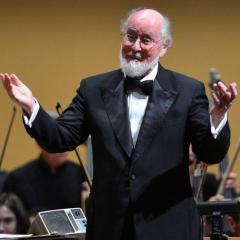
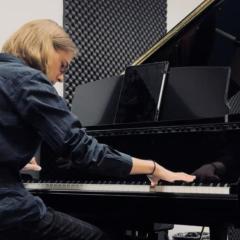
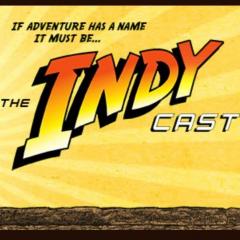
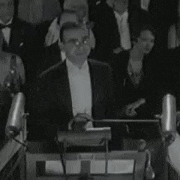
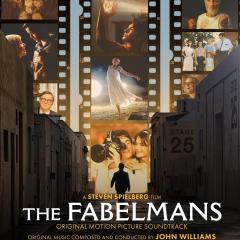
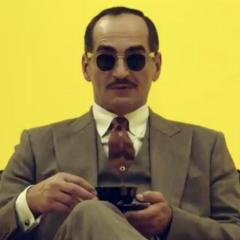
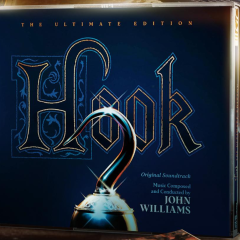
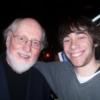

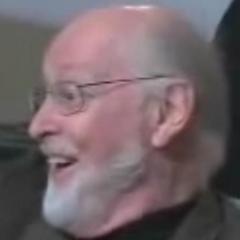
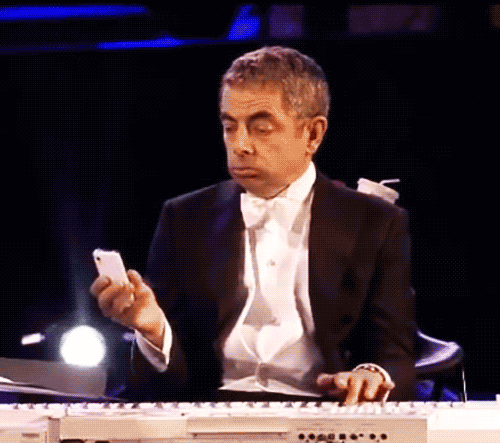
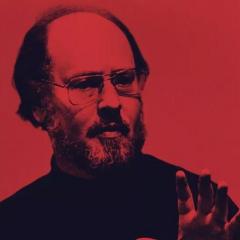

.thumb.gif.df2a851b259fbffe34b18fc1c796422a.gif)
